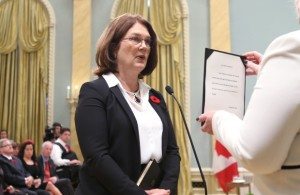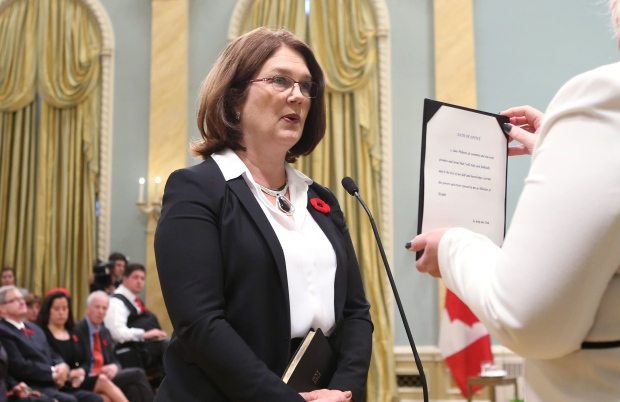December 2, 2015

With the election of a new federal Liberal government, we have seen indications Ottawa will take a more active role with respect to health care. The previous federal Conservative government had largely taken a hands off approach arguing that provinces are primarily responsible for the delivery of health care.
Although health care, as outlined in section 91 of the Constitution, is largely a provincial responsibility the federal government does still have a role in particular areas including funding, public health, research as well as fostering best practices and innovation. The federal government also has specific responsibility for particular populations including First Nations living on reserves.[i]
Most recently, the new federal government’s more active approach to health care was seen in the mandate letter sent in November 2015 from Prime Minister Justin Trudeau to Canada’s newest health Minister, Jane Philpott. This letter outlined some of the key priorities of the new federal government with respect to health including negotiation of a new multi-year health accord with commitments for better home care services, as well as better access to prescription medications and quality mental health.[ii] Other federal health commitments include regulations to reduce trans fat and sodium in processed foods, new plain-packaging requirements for tobacco products, legalization and regulation of marijuana as well as responding to the Supreme Court of Canada’s decision on physician-assisted death.[iii]
BCCPA suggestions for a new federal health accord

The BC Care Providers Association (BCCPA) welcomes actions that the federal government can take with provinces to improve health care, particularly seniors care in order to meet the needs of a growing and aging population. Currently seniors comprise about 14% of Canada’s population but account for almost half of health costs. By 2036, it is projected more than 25% of Canadians will be older than 65 and, by then, will account for 62% of this nation’s health costs. [iv]
In particular, the BCCPA supports a federal government, as indicated by Minister Philpott, which can work collaboratively with provinces to establish a new health accord.[v] As part of any new health accord, the BCCPA advocates for the establishment of an age-adjusted Canada Health Transfer (CHT) that reallocates funding to provinces such as British Columbia with higher and growing portions of seniors; as well as new and/or reallocated funding to improve capacity and build infrastructure, reduce wait times and support new continuing care models for residential care and home care.
The BCCPA believes that changes to the CHT along with new investments would help assist in meeting some of the capacity challenges facing the continuing care sector as well as improving seniors care overall. In 2012, it was reported that 461,000 Canadians were not getting the home care they thought they required. Wait times for access to long-term care in Canada also ranged anywhere from 27 to 230 days.[vi] Other key concerns facing the sector include health human resource challenges – particularly the shortage of geriatricians and other health care providers.
A new health accord should also meet the Liberal commitments outlined during the last election including a long term agreement on funding; investments of $3 billion over next four years to deliver more and better home care services for Canadians; a pan-Canadian collaboration on health innovation; as well as improving access to necessary prescription medications, particularly for seniors.
With the aging population and increased pressures facing the acute care system, now is also the time as part of any federal-provincial collaborative action to explore new solutions to improve seniors care. Part of this could include redesigning the health system with new care models, but also targeted investments such as those outlined in the BCCPA policy paper entitled Quality, Innovation, Collaboration – Strengthening Seniors Care Delivery in BC which was released in September 2015.[vii]
As outlined in the BCCPA paper, Canada’s health system is still largely acute care oriented and not optimally designed to provide care for those with ongoing care needs, such as chronically ill or frail elderly. When Canada’s Medicare system was created 50 years ago, the average life expectancy in Canada was 68.1 years. Today, the average life expectancy is 81.7 years, yet the health system has only marginally adapted to meet the needs of our aging population.[viii]
The BCCPA is optimistic that the federal government collaborating jointly with provinces and territories can come up with solutions to meet the challenges Canada faces with a growing and aging population. The BCCPA also intends to work with its federal counterpart the Canadian Alliance for Long-term Care (CALTC) to press solutions to provide better care for seniors.
END NOTES
[i] BCCPA Op-ed. Role of Federal Government in the Continuing Care Sector: Fostering Innovation. May 14, 2015. Accessed at: https://bccare.ca/role-federal-government-continuing-care-sector-fostering-innovation/
[ii] Minister of Health Mandate Letter. November 13, 2015. Accessed at: http://pm.gc.ca/eng/minister-health-mandate-letter
[iii] Ottawa Citizen. Mark Kennedy. Tobacco packaging, trans fats to be part of government’s ‘activist’ health agenda. November 19, 2015. Accessed at: http://ottawacitizen.com/news/national/tobacco-packaging-eliminating-trans-fats-to-be-part-of-governments-activist-health-agenda
[iv] BCCPA Op-ed. Role of Federal Government in the Continuing Care Sector: Fostering Innovation. May 14, 2015. Accessed at: https://bccare.ca/role-federal-government-continuing-care-sector-fostering-innovation/
[v] Ipolitics. Philpott gets to work on new health accord next week. Kristy Kirkup. November 7, 2015. Time for a national seniors’ strategy. Orillia Packet & Times. Dave Dawson. August 5, 2015. Accessed at: http://www.orilliapacket.com/2015/08/05/time-for-a-national-seniors-strategy
[vi] Canadian Medical Association. Doctors to leaders: Canadians want a Seniors Care Plan in election. August 2, 2015. Accessed at: http://www.newswire.ca/news-releases/doctors-to-leaders-canadians-want-a-seniors-care-plan-in-election-520419582.html
[vii] BCCPA. Quality-Innovation-Collaboration: Strengthening Seniors Care Delivery in BC. September 30, 2015. Accessed at: https://bccare.ca/wp-content/uploads/BCCPA-White-Paper-QuIC-FINAL-2015.pdf
[viii] BCCPA Op-ed. Role of Federal Government in the Continuing Care Sector: Fostering Innovation. May 14, 2015. Accessed at: https://bccare.ca/role-federal-government-continuing-care-sector-fostering-innovation/




